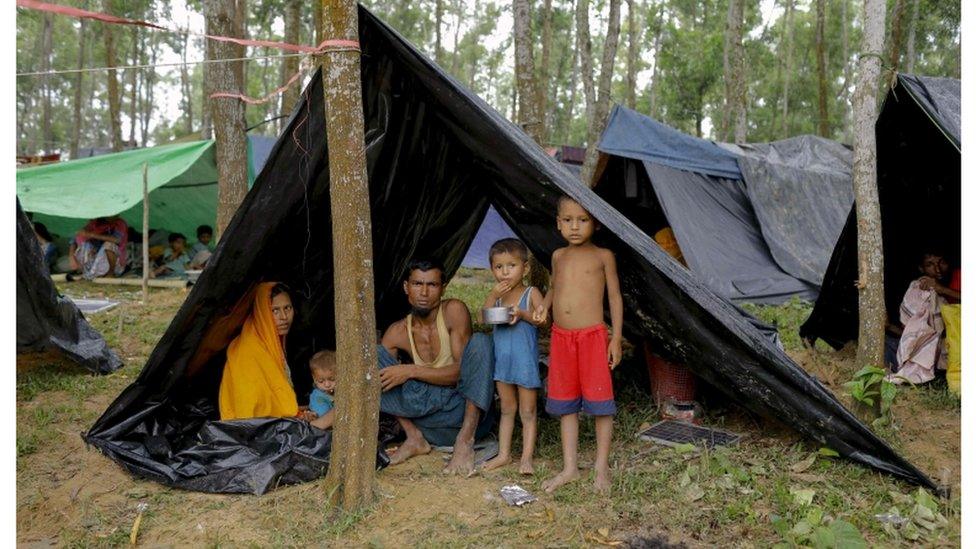Rohingya crisis: Suu Kyi says 'fake news helping terrorists'
- Published
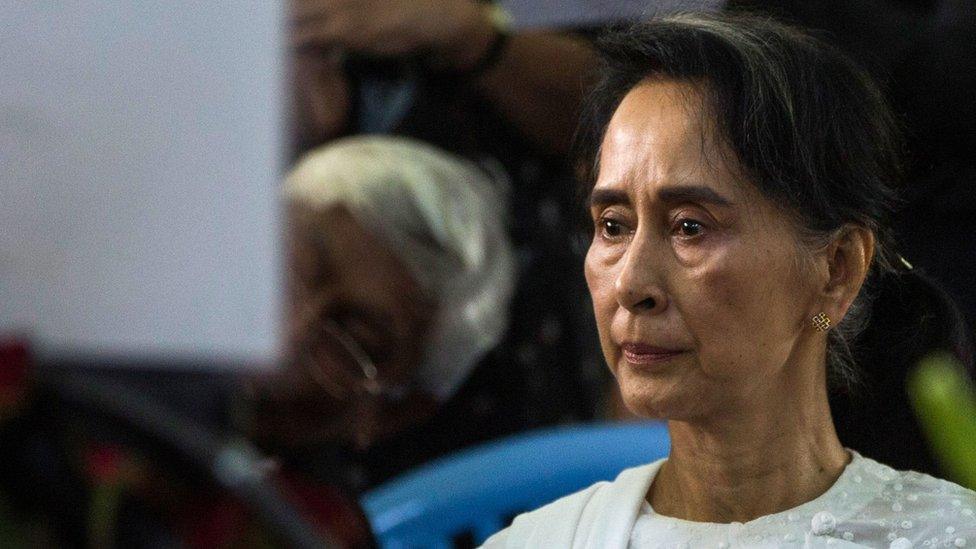
Ms Suu Kyi has faced growing criticism over her response to the Rohingya crisis
Myanmar's de-facto leader Aung San Suu Kyi has claimed that the crisis in Rakhine state is being distorted by a "huge iceberg of misinformation".
In her first comments on the latest Rohingya crisis, she said tensions were being fanned by fake news promoting the interests of terrorists.
Ms Suu Kyi made the comments in a phone call with Turkish President Recep Tayyip Erdogan, her office said.
More than 123,000 Rohingya have fled Myanmar for Bangladesh in two weeks.
The latest outbreak of violence has sent waves of refugees fleeing the country, which is also called Burma.
What has Suu Kyi said?
The latest government statement , externalsaid Ms Suu Kyi told Mr Erdogan that her government had "already started defending all the people in Rakhine in the best way possible".
Ms Suu Kyi is quoted as saying: "We know very well, more than most, what it means to be deprived of human rights and democratic protection.
"So we make sure that all the people in our country are entitled to protection of their rights as well as, the right to, and not just political but social and humanitarian defence."
The BBC's Sanjoy Majumder treks through difficult terrain with people fleeing Myanmar
The statement also said there were many fake news photographs circulating which were "simply the tip of a huge iceberg of misinformation calculated to create a lot of problems between different communities and with the aim of promoting the interest of the terrorists".
Is it 'fake news'?
There has certainly been a large amount of "fake news" surrounding recent events.
By 5 September there had been 1.2 million tweets talking about the crisis since refugees began flooding over the border, and many contain pictures purportedly showing a glimpse of the violence which has engulfed the region.
The problem is, according to the BBC's south-east Asia correspondent Jonathan Head, "much of it is wrong". A closer look reveals many - but not all - of the pictures come from other crises around the world, with one tweeted by Turkey's Deputy Prime Minister Mehmet Simsek dating back to the Rwandan genocide in 1994.
The BBC's Jonathan Head went on a government-organised trip in Rakhine state last week
But the BBC Burmese Service's Tin Htar Swe said much of the blame for Ms Suu Kyi's "iceberg" could be laid at the government's door.
"The fake news is generated because the government is not allowing media access to the troubled areas," she said. What's more, she added, "if they allowed the UN or human rights bodies to go to the place to find out what is happening then this misinformation is not going to take place".
Where are the refugees?

Some 123,600 people have crossed into Bangladesh since 25 August, the Inter Sector Co-ordination Group reports
In addition to the numbers shown on the map, about 36,000 additional refugees are also living in host communities and spontaneous sites dotted around the border region.
As a result, all people outside the affected areas have to rely on is the conflicting accounts of the Rohingya fleeing Myanmar and the government - with the space in between ripe for "fake news".
However, we do know the latest conflict was sparked on 25 August when Rohingya militants attacked police posts, triggering a military counter-offensive.
The military says it is fighting against Rohingya militants who are attacking civilians.
But the Rohingya families streaming north into Bangladesh have been reporting that security forces, sometimes backed by armed Buddhist civilians, burned their villages and opened fire on their inhabitants.
Their story has been contradicted by Myanmar's Minister in charge of Border Security in Rakhine, Col Phone Tint. He told our correspondent Jonathan Head who is travelling on a government-organised visit to the border town of Maungdaw that the destruction of villages was a deliberate strategy by the militants, aimed at forcing the Muslim population to flee to neighbouring Bangladesh.
Meanwhile, two Bangladeshi government sources told Reuters news agency they believe Myanmar has been laying fresh landmines along the border, despite the flood of refugees trying to cross to safety.
The allegations came after blasts were heard in the area, in which two children and a woman were injured, according to news agency AFP.
Rohingya families are living in makeshift shelters in refugee camps
The area was mined in the 1990s, during military rule, to prevent trespassing. Myanmar's government has yet to respond as to whether or not fresh mines have been laid in recent weeks, Reuters said.
But on Monday, Ms Suu Kyi's spokesman Zaw Htay questioned who exactly had placed the explosives.
"Who can surely say those mines were not laid by the terrorists?" he asked Reuters.
Why are people so disappointed in Suu Kyi?
Ms Suu Kyi was awarded a Nobel Peace Prize for her work bringing democracy to Burma, but some have called for her Nobel Peace Prize to be taken back., external
While she has previously acknowledged problems in Rakhine state, she has denied there is ethnic cleansing of the Rohingya,
Several fellow laureates have called on her to act in the latest conflict, and the UN's special rapporteur on human rights in Myanmar this week said she must "step in".
Her biographer Justin Wintle said he was "flabbergasted" by Ms Suu Kyi's response - telling the BBC he thought she was "impervious" to international opinion and was now "in the army's pocket".
Aung San Suu Kyi was questioned by the BBC's Fergal Keane in April on why she hadn't done more for the Rohingyas
"She has achieved a lot and we shouldn't hide away from that fact," he said. "But then you get into a zero sum equation where she won't stand up to the generals then what's the point, quite frankly?"
Who else is willing to take the Rohingya in?
There have been outpourings of support from politicians like President Erdogan, and Chechen leader Ramzan Kadyrov, among others.
In Indonesia, thousands marched on Myanmar's embassy in a show of solidarity with the Rohingya, while Foreign Minister Retno Marsudi has already travelled to meet Ms Suu Kyi to urge an end to the bloodshed.
However, Myanmar's neighbours have come under criticism for not doing more to deal with the crisis. Bangladesh has previously refused to recognise the Rohingya as refugees, with Amnesty International accusing the country of sending people back to Myanmar to face an uncertain future.
Earlier this year, the government in Dhaka suggested relocating all Rohingya refugees to a low-lying island vulnerable to flooding and without roads in the Bay of Bengal.
Meanwhile, Indian Prime Minister Narendra Modi was in Myanmar meeting with Ms Suu Kyi as the crisis continued to unfold on Wednesday.
All he would say was that he shared the government's "concern" about extremist violence in Rakhine State and the innocent lives lost - sidestepping the issue of criticising his neighbour.
Ms Suu Kyi, for her part, thanked Mr Modi for his "strength" in regard to the "terrorist threat" her security forces were facing.
Mr Modi last month vowed to deport the 40,000 Rohingya living in India.
Thailand appears to have a more welcoming stance towards the Rohingya, with Prime Minister Prayuth Chan-ocha telling reporters they were preparing for arrivals and "will provide them with shelter like in the past... and send them back when they are ready".
An Al Jazeera report , externalfrom January 2017 noted the Thai authorities, working with the European Union and a number of NGOs, were improving access to education and other basic services.
- Published4 September 2017
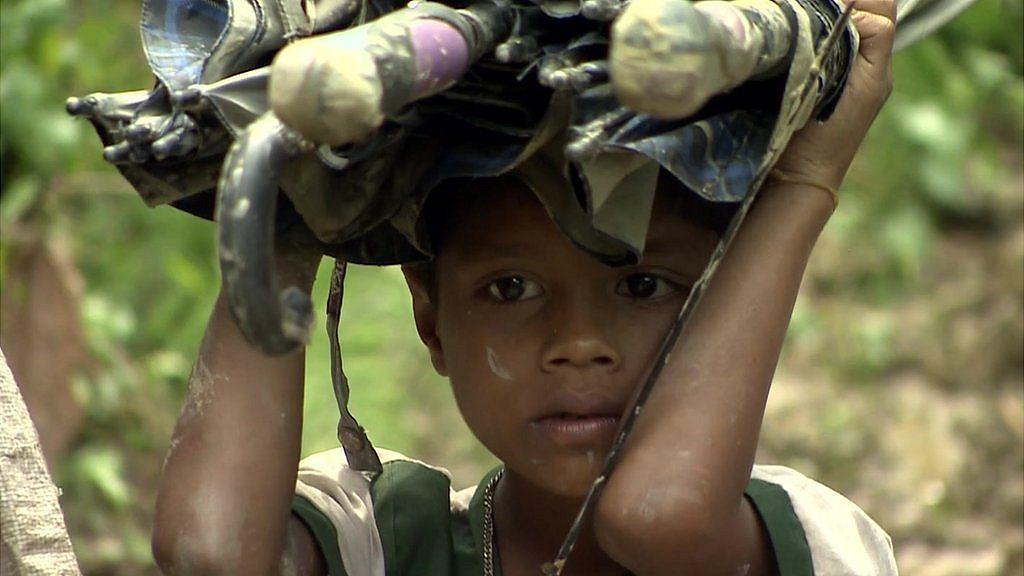
- Published2 September 2017
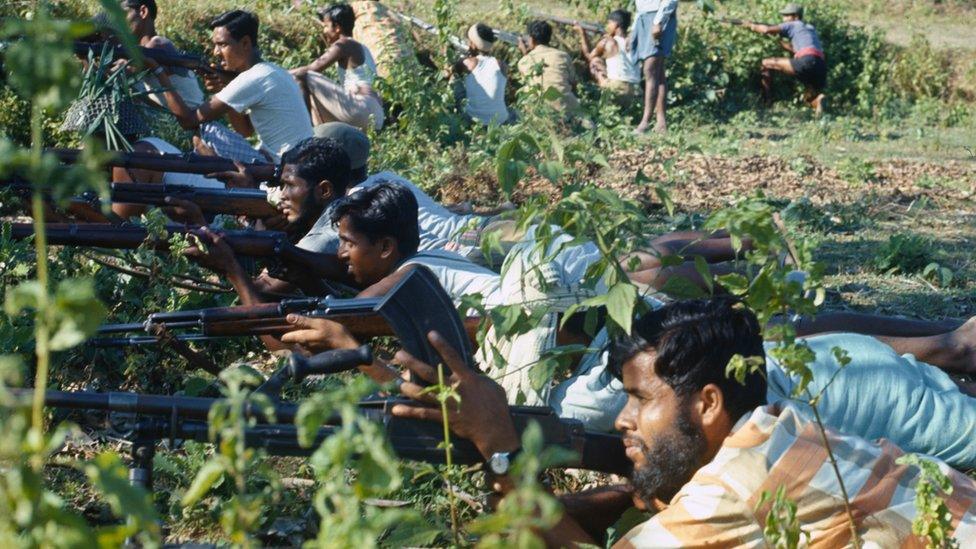
- Published19 September 2017
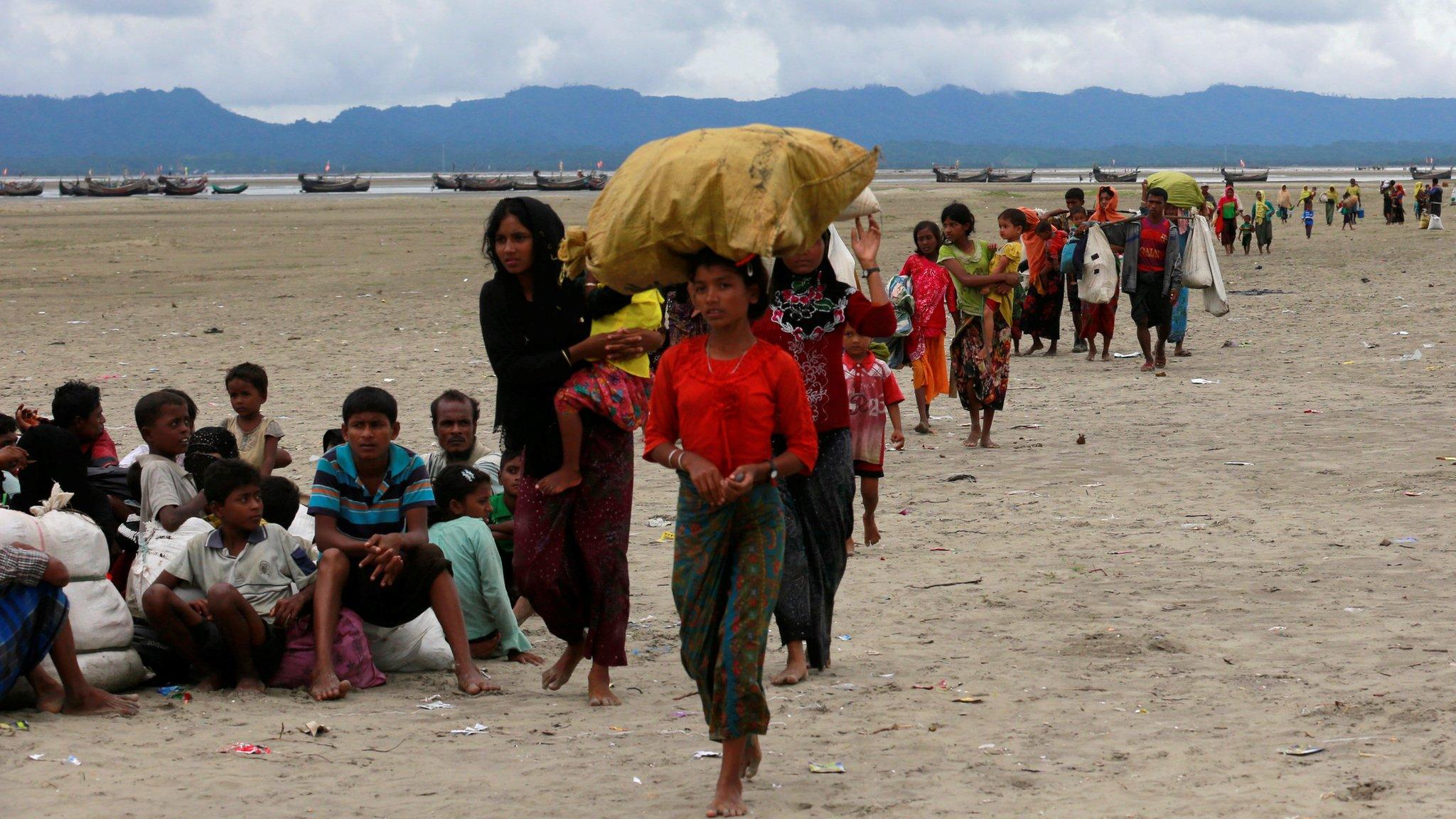
- Published6 September 2017
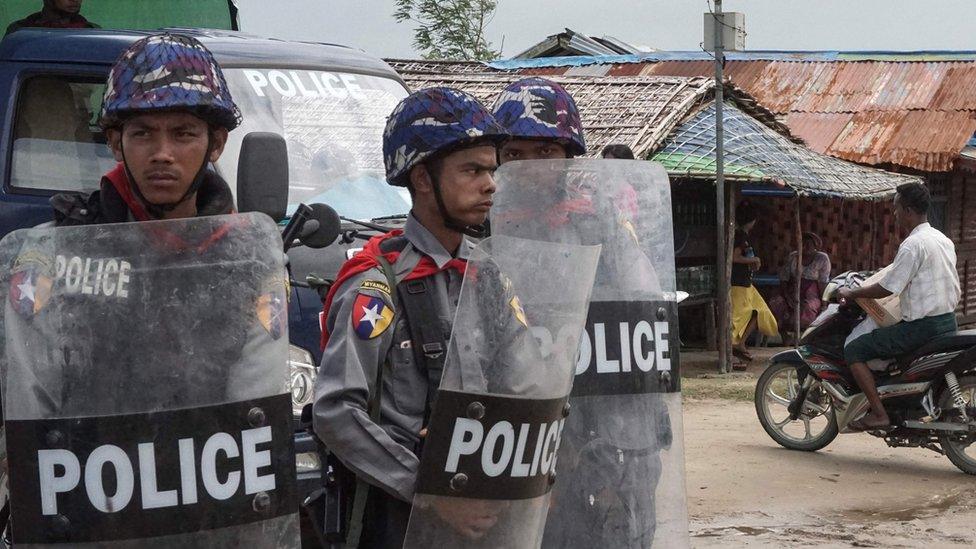
- Published5 September 2017
